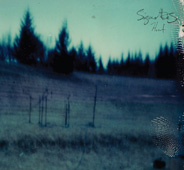Beside the Kawiwi River
I started down rumpled sidewalk of Ala Hema Street and out onto Farrington Highway, running northwest past the homeless shelter with its barracks-like construction and razor wire topping its chain link fence. A man and a woman sat on the curb inside the compound and smoked cigarettes. The man waved at me offhandedly and I managed a short breathless vowel of hello as I jogged. Beyond that, the shoulder opened onto a wide green field - sprinkler fed on the leeward side of the island - that bordered the intermediate school in the distance. I decided to make the end of the field my turnaround, and I laughed a little sadly at the gang tags that labeled the reflector on each telephone pole with the name "Saint." Aloha kakahiaka. Aloha Iesu ia'oe, even in the face of darkness.
If you listen to the dry savannah grasses in the Diamond Head caldera, you can here it in their whisper. God still lives here, amongst the hopeless. The fields are ripe, and the workers are few. In the beautiful faces of children who were so happy just to play with pipe cleaners and stickers and hear Bible stories, in the awkward but grateful smiles of their older cousins and aunts and uncles, their neighbors, their 'ohana, who were glad to stand around and talk with us, you could sense the hunger and the humility, the readiness.
I spent the week working on the third floor of Pu'u Kahea, a hundred-year-old sugar plantation house in Waianae, Oahu. The foolhardiness of those in charge to give me the task of redemptive carpentry was astounding, but I couldn't have been happier than to put my hands on the old cedar walls and to breath the astringent smell of that wood as we cut it and reformed the room. It smelled a little like lime Gatorade. We fought with the angular ceiling and the endless termite damage as others in the group took on various projects around the grounds of the camp. But the greatest reward was probably seeing the smile of a couple little girls as they collected our addresses on the last night and excitedly told people that they had learned how to talk to God.












